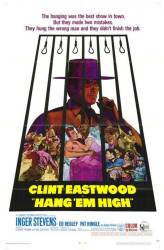
Factual error: Near the end, when Cooper and Rachel are talking in the street, you can see in the background a multi-story brick and glass office building. It appears again a few shots later.
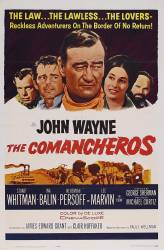
Factual error: The rifles that Jake Cutter has Paul Regret dig up are Henry repeaters, or possibly 1866 Winchesters. Either way weapons unavailable in the period depicted in the movie.
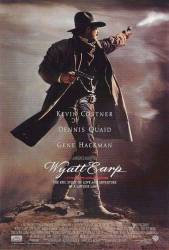
Factual error: When Wyatt (Kevin Costner) becomes the sheriff/deputy/policeman of Wichita, Kansas, you can plainly see mountains in the background - there aren't any around there.
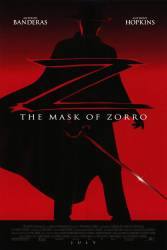
Factual error: During the scene towards the end of the film where Alejandro is chasing Captain Love in the shack with the furnace at the mine, we see a pressure gauge just before the furnace explodes. The unit of measurement on the pressure gauge is shown as kg/cm2. Metric measures were not used in Mexico until eleven years after the film was set, and as California was a part of Mexico at the time, metric measurements would not have been used there.
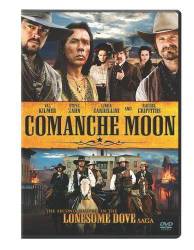
Factual error: The aged brave, singing his death chant, has fillings.
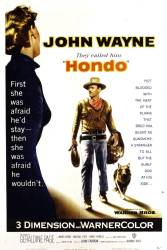
Factual error: When John Wayne and Geraldine Page first meet the lead cavalry man and 'Buffalo Baker', you can see in the distance a radio tower on top of the hill/mountain.
Suggested correction: It's not a radio tower. It leans to one side and also the line goes almost to the creek bed. When the troops come back after getting ambushed it's not in the picture anymore.
I'm currently watching the movie and I noticed the radio tower in the background. There are no wires and the tower was not leaning.
Suggested correction: It isn't a tower at all, it's a flaw in the film. As the scene continues, at one point you can see it kind of shake or move a little. It's just a line or flaw on the film itself, it's not a radio tower or anything in the background.
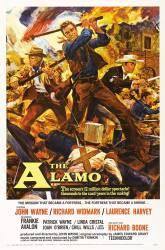
Factual error: Approximately 2 hours and 10 minutes into the "restored" full-length video version, there's a birthday party for little Lisa Dickinson, and the Alamo defenders sing "Happy Birthday" to her. The Alamo battle happened in 1836. According to David Ewen's "All the Years of American Popular Music," the song "Happy Birthday to You" was composed and copyrighted by sisters Patty and Mildred J. Hill, first as "Good Morning to All," in 1893.
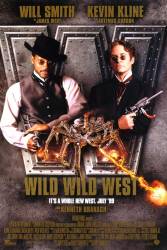
Factual error: When they show the capital building in Washington DC it is still under construction, but it was actually finished in 1864 - 5 years before the movie's set.
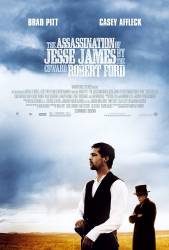
Factual error: When Bob Ford opens the box under the bed, on top is an issue of "The Jesse James Stories" weekly, which was published from 1901-1903 - fully twenty years after the events of this film. (00:36:10)
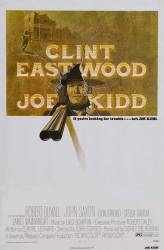
Factual error: When the posse arrives at the mission, a horizontal jet stream can be seen during this scene. (01:00:00)
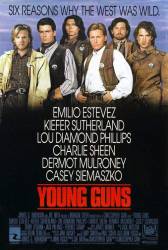
Factual error: When Billy The Kid is taking a bath and dictating a letter to Doc, intended for the governor, he says he is in the Mexican village of Juarez. This town was actually named "Paso del Norte" at the time, it wasn't until 10 years after the events depicted in the film that it was renamed "Ciudad Juarez."
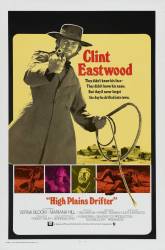
Factual error: When Clint Eastwood first goes to the barber shop, the barber very deliberately sharpens his razor the wrong way, flipping the blade with its sharp edge against the strop - this would instantly dull the blade. No real barber would make this mistake, but it's a common movie error.
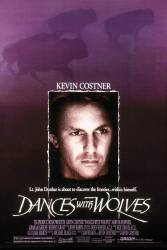
Factual error: The Henry Repeating Rifle seen in 1865 is impossible, because it's the "King's Patent Henry Rifle" which wasn't out until 1866. The original Henry had a loading tube under the barrel, not one on the side of the breech. Plus the ammo used is the larger, more modern rounds.
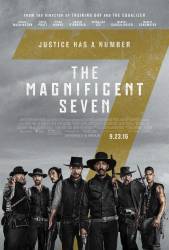
Factual error: The character Red Harvest is a Comanche. He is sporting a Mohawk haircut. This hair style was not in use by the Comanche tribe, but used by the Iroquois and Mohawks.
Suggested correction: The Mohawk hairstyle was used amongst many different plains tribes as well as eastern tribes.
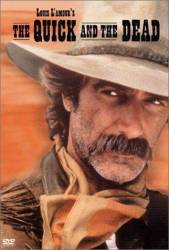
Factual error: Throughout the film Doc Shabbit is carrying a rifle that is supposed to be a Henry repeater. If you look closely it is a Model 1892 Winchester with the forearm removed and a piece of metal welded on the magazine tube to simulate the magazine plunger. The plunger is up against the front of the receiver, which indicates the magazine is empty. Most weapons carried by other characters are pretty much period correct, but a main character has a cobbled up weapon.
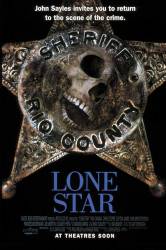
Factual error: We learn that the previous sheriff, Charlie Wade, took revenge on anyone who smuggled illegal immigrants across the border in the late 1950s - we are shown the smuggling, as Eladio Cruz hides a group of Mexican men in a watermelon truck to take them across the border. However, in the 1950s, the border was not fortified the way it is now - the smuggling shown would simply not have been necessary.
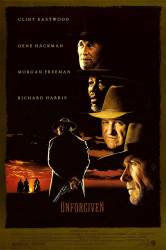
Factual error: During the confrontation between Little Bill and English Bob outside the barber shop, all the Deputies cocked their guns - for emphasis. Then Mr. Beauchamp reaches into his bag to show that he only has books, the Deputies cock their guns again. With the rifles they have this would eject the shell that was in the barrel and cycle a new one. It doesn't.
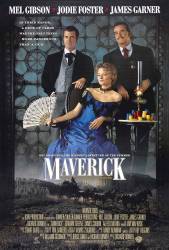
Factual error: Maverick and the rest of the poker players throughout the movie are using plastic poker chips. You can tell by the sound they make when thrown. Poker chips during that time were made out of wood or ceramic.
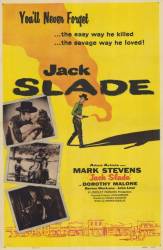
Factual error: After they bury Jack's father, the stage driver hands Jack what he refers to as a "Navy" Colt. However, in 1841, the only colt handguns were a handful of Paterson revolvers, usually carried by Texas Rangers, and in fact, the revolver handed to the boy was a cartridge weapon.
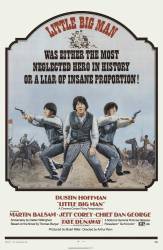
Factual error: The worst historical distortions in this film must concern legendary "Wild Bill" Hickock. First of all he wasn't killed by a teenage boy, but one John McCall, a man in his 30's. McCall sneaked behind Hickock who was in the middle of a poker game and shot him through the head killing him instantly. Secondly this took place on August 2 1876, about five weeks AFTER the Custer's Last Stand. (01:46:30)